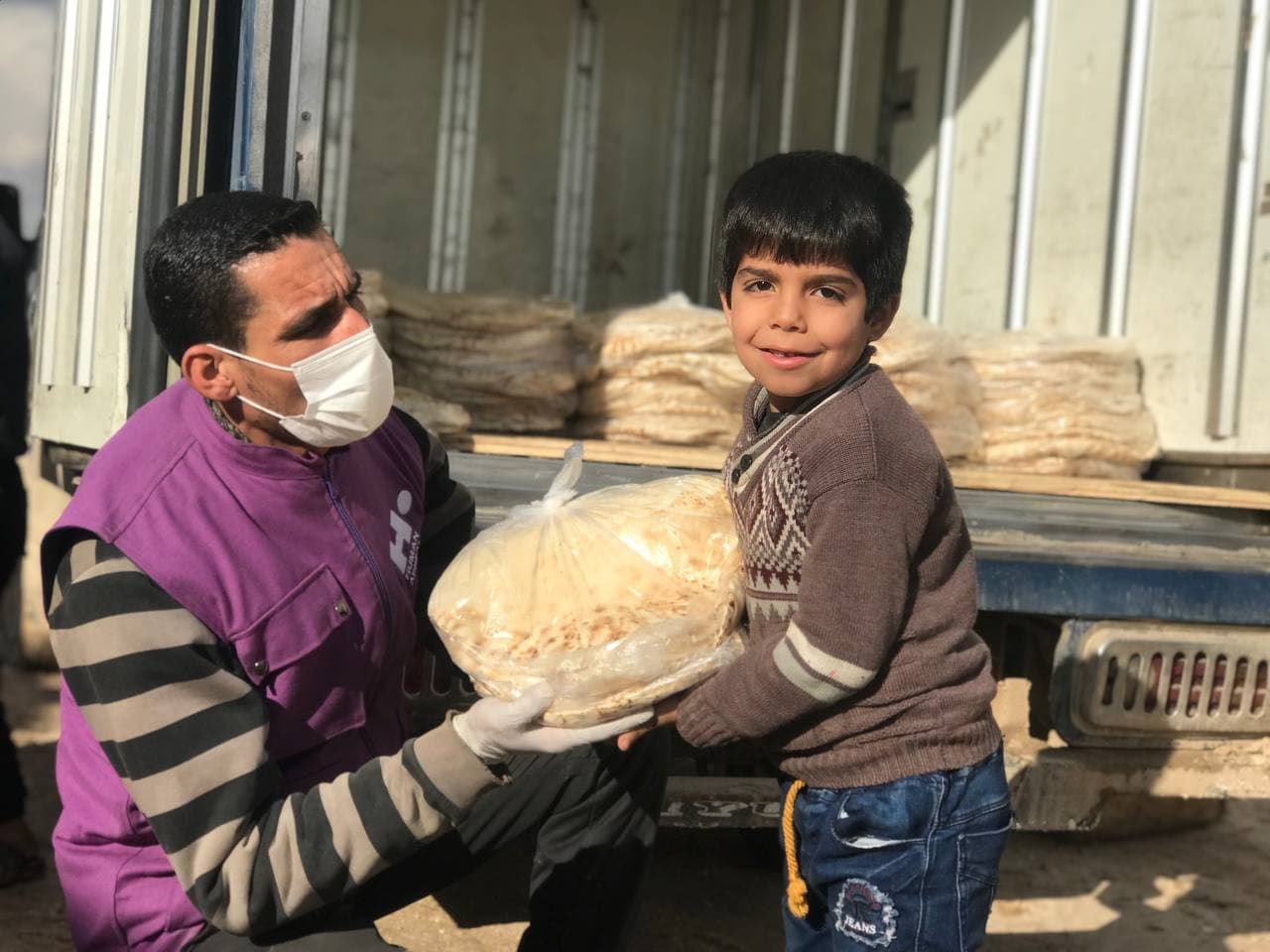A world tour of famine frontlines
THE ARTICLES ON THESE PAGES ARE PRODUCED BY BUSINESS REPORTER, WHICH TAKES SOLE RESPONSIBILITY FOR THE CONTENTS

Human Appeal is a Business Reporter client
We are facing a hunger crisis. UN statistics tell us that one in nine people go hungry every day. The evidence is seen all around us, shown through mainstream media, social media and accounts from people we know. Perhaps we are even experiencing it ourselves
We are facing a hunger crisis. UN statistics tell us that one in nine people go hungry every day. The evidence is seen all around us, shown through mainstream media, social media and accounts from people we know. Perhaps we are even experiencing it ourselves.
The causes are many. Multiple national and international conflicts place lives at risk not only through the danger of conflict-driven violence but also lack of ability to access food and sanitary water. The climate crisis causes problematic and insecure unreliable weather conditions for crop growing, while natural disasters damage farming land and disrupt the transportation of both ordinary food supplies and emergency provisions.
In the UK, as inflation and the cost of living rise, more families are going without meals as food prices increase and decisions are being made over the need to heat and power a home or have enough to eat – often with not enough money for either.
At the frontline of combatting the hunger crisis is Human Appeal, which operates emergency response as well as development programs in countries around the globe, from Afghanistan, Pakistan and Yemen to the UK – where each year more children experience food poverty. Having a presence on so many global hunger fronts means Human Appeal understands the long-reaching effects of food poverty as well as the multitude of causes and the fight against it.
How do we combat this growing global crisis? Its causes are vast and long reaching and there is no one approach. One size does not fit all. Instead, for each community and country, actions must differ. There are many instances where aid is carried out despite food being plentiful, as it is still inaccessible to many – a contrast to those areas suffering from food shortages or famine but ultimately with the same consequences. Human Appeal’s work must be as varied as the situations in which our beneficiaries live.
In Somalia, 350,000 children are facing starvation. Extreme drought has caused crop loss and famine, affecting 90 per cent of the country. Sadly, people face not just the very real and stark threat of starvation but also the loss of homes, land and community as more Somalians leave their home and become internally displaced in the search for food and water sources. Human Appeal is tackling immediate needs, supplying monthly food packages to displaced people living in camps in Mogadishu. These packages also include high-calorie treatments for malnutrition, which are vital in restoring health to those living with the extreme effects of famine, especially children.
For families in Syria, the food crisis comes not as a result of weather conditions but as a lasting effect of the ongoing 11-year conflict. 12.4 million Syrians, both living in their homes and internally displaced, face food shortages and hunger. As well as providing food parcels, Human Appeal actively combats the effects of the hunger crisis in Syria through the building of hospitals and the provision of dialysis and other medical interventions and permanent home structures to act as long-term solutions.
The numbers are no better in Yemen, where 20 million people (about the population of New York) face food shortages and 161,000 thousand people are at risk of famine as a result of environmental factors and the soaring prices of food. The situation has grown so bad that more than 12 million children are being treated for malnutrition. Alongside food parcels, Human Appeal assists farmers with seeds, equipment and water tanks. Intensive hospital care is provided for women as well as neonatal care for new babies and mothers, often at greater risk of complications because of malnutrition.
Through our emergency fund, Human Appeal has been providing water, food and medicine to the many vulnerable in Afghanistan. However, the situation has worsened since we first arrived. In June, a deadly earthquake hit the Khost province of Afghanistan, worsening the displacement and food crisis already affecting 93 per cent of households. 2 million children are malnourished and with healthcare systems also collapsing, treatment is scarce. Human Appeal has been providing cooked meals for survivors and distributed fresh meat on Qurbani Eid.
This year has also seen Ukraine enter crisis. With 4 million Ukrainians now displaced, and many remaining in conflict zones, it is predicted that 12 million Ukrainians will experience food scarcity. Human Appeal began on the ground in Poland providing resources to refugees but has now been able to move into Ukraine and, through partnership with local NGOs, provide much-needed food, water and shelter in three key cities. We have also facilitated the delivery of medical supplies to Ukraine in partnership with Globus Relief USA.
Families around the world need our support now, before hundreds of thousands of lives are lost to this silent crisis.
Hunger kills. Donate now. Save a life, save humanity.
Originally published on Business Reporter
